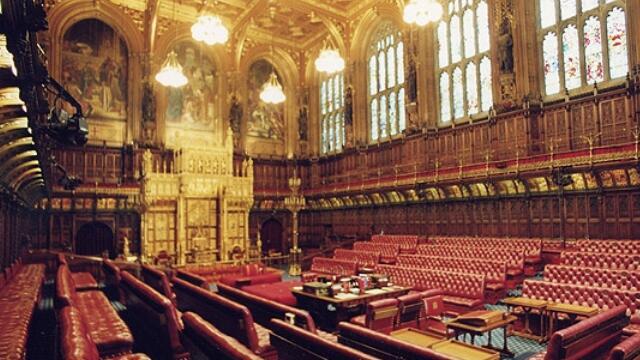LONDON — The British Parliament is redoubling its efforts to enforce porn filters with stringent age verification measures, despite the E.U. outlawing such web traffic discrimination, and the House of Lords held a fierce debate today on pornography's societal impact.
Unlike the House of Commons, where Members of Parliament (MPs) are elected, most House of Lords members are appointed. It is further split into the Lords Spiritual, made up of 26 bishops from the Church of England, and the Lords Temporal, where the majority of its 790 or so members are lifetime appointees picked by the Queen on the advice of the Prime Minister.
Over half of the House of Lords are over the age of 70, with several over 90 years old. Many of them claimed that the Internet and pornography had altered sexual attitudes over the decades.
"My first hand knowledge of pornography is very limited," admitted the Bishop of Chester, who first introduced the debate to the Lords and wanted to address "squalid, dirty sex."
"I have to admit I am not an expert on pornography," said Lord Northbourne, who inherited his position in the House of Lords. He nonetheless alleged that declining values were "being passed down in our society today" because of the "growing problem" of porn.
"We're in danger of sleepwalking our way through deeply concerning changes in decency in society," offered Lord Farmer, senior treasurer of the Conservative Party, who lamented the "growing number of teenage girls suffering the after effects of frequent anal sex."
Lord Giddens, who actually has extensive academic expertise in sociology and is the author of at least 34 books, asked his peers to question the veracity of scientific evidence purporting that pornography has detrimental effects.
"We just don't know at this point how far regular exposure to pornography on the part of minors affects their actual sexual behavior, how far it damages relationships, leads to addictive behavior and so forth, or crucially, on what scale, we just don't know on what scale," Giddens said, adding that much of the data on the subject was "superficial" at best.
"There is a very fine line to tread," he added. "If children are shielded too much and for too long they may not be able to cope simply when plunged into the maelstrom that is sexuality today."
He further observed that "cybersex has become part and parcel of everyday sexuality," that porn is part of the "complete range of human inventiveness" and that more research was needed before the government enacted "intrusive policy."
Lord Scriven also cautioned against relying on technology to limit "underage" exposure to porn.
"We need to be much cleverer," he said. "It's about parents talking openly with children about sexuality and the issues around pornography." Furthermore, he believed that if adults wanted to watch porn "to spice up their sex lives," then legislators should only have a "very limited" role to play in their access to such content.
The debate comes amidst Prime Minister David Cameron's vow to use an opt-out for porn filters after the recent E.U. ruling on net neutrality.








